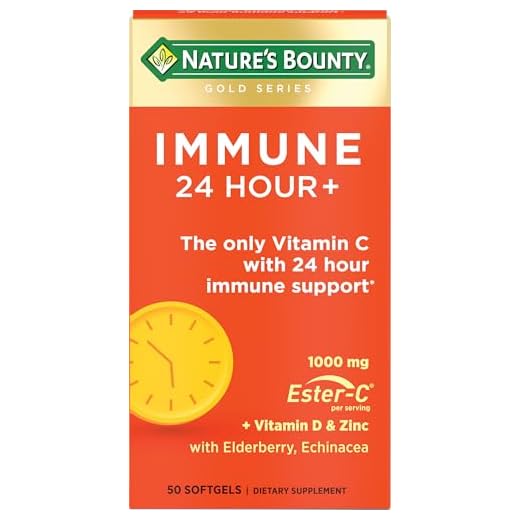







Enhancing your immune system, multivitamins provide vital nutrients to strengthen your body's defenses against illnesses. Vitamins like C and D play essential roles in immune response and fighting infections, while zinc supports white blood cell function. Selenium aids in immune regulation, and Vitamin E acts as a powerful antioxidant. Vitamin A boosts defense mechanisms, and B vitamins promote overall immune health. Multivitamins fill nutrient gaps, supporting your body's well-being. Consulting a healthcare provider can help tailor multivitamin choices to your needs. Learn more about how multivitamins bolster immune function and overall wellness.
Key Takeaways
- Multivitamins support immune function by providing essential nutrients.
- Vitamin C and D in multivitamins enhance immune response and defense.
- Zinc in multivitamins regulates white blood cells for better immunity.
- Selenium in multivitamins boosts immune cell function against infections.
- Multivitamins fill nutrient gaps, strengthening overall immune system.
Importance of Multivitamins
Highlighting the essential role of multivitamins in supporting overall health and immune function is important in understanding the significance of incorporating these supplements into your daily routine. Multivitamins play a crucial role in providing the body with the necessary nutrients it needs to maintain a robust immune system. The immune system relies on a variety of vitamins and minerals to function at its best, and a deficiency in any of these essential nutrients can compromise its effectiveness in fighting off infections and diseases.
By ensuring you have an adequate intake of multivitamins, you are providing your body with the nutritional support it needs to bolster its immune defenses. Vitamins such as vitamin C, vitamin D, and zinc are known for their immune-boosting properties and are commonly found in multivitamin supplements. These nutrients help regulate immune responses, support the production of immune cells, and enhance the body's ability to combat pathogens effectively.
Incorporating a multivitamin into your daily routine can help fill any nutritional gaps in your diet, providing your immune system with the necessary support to function at its best. Remember, a well-nourished body is better equipped to defend itself against illnesses and maintain overall health.
Essential Vitamins for Immunity
To understand how multivitamins impact the immune system, it is important to identify the specific vitamins essential for boosting immunity. Certain vitamins play a critical role in supporting the immune system, helping to ward off infections and diseases. Immune-boosting foods rich in these essential vitamins can help maintain a strong immune response.
Vitamin deficiencies can weaken the immune system, making the body more susceptible to illnesses. For instance, vitamin D is known for its immune-modulating effects and deficiency in this vitamin has been linked to increased susceptibility to infections. Vitamin C is another essential nutrient that plays an important role in supporting the immune system by promoting the production of white blood cells, which help fight off infections.
Ensuring an adequate intake of these essential vitamins through a balanced diet or supplementation can help strengthen the immune system and improve overall health. By addressing potential vitamin deficiencies and incorporating immune-boosting foods into your diet, you can support your body's natural defense mechanisms.
Role of Vitamin C

Vitamin C, an essential antioxidant, plays a pivotal role in supporting the immune system by enhancing the production of white blood cells essential for fighting off infections. This antioxidant role is critical in protecting cells from damage caused by free radicals, which can weaken immune function. Additionally, vitamin C is involved in collagen synthesis, a process important for maintaining the skin and mucous membranes that act as barriers against pathogens. Adequate levels of vitamin C are necessary for ideal immune health as it helps in the prevention and treatment of various infections.
Research suggests that vitamin C supplementation can reduce the duration and severity of common colds by boosting the immune response. Moreover, vitamin C has been shown to enhance the function of phagocytes, the white blood cells that engulf and digest pathogens. Ensuring sufficient intake of vitamin C through diet or supplements is essential for maintaining a robust immune system and overall health.
Impact of Vitamin D
An essential factor to take into account when examining the immune system's function is the impact of vitamin D. Vitamin D plays a pivotal role in immune regulation by influencing the expression of genes involved in immune responses. One key aspect of vitamin D is its role in enhancing the absorption of calcium, which is indispensable for immune cell function and communication.
Research suggests that vitamin D deficiency is associated with an increased susceptibility to infections and autoimmune diseases due to its influence on immune system balance. Vitamin D receptors are present in immune cells, highlighting its importance in modulating immune responses.
Moreover, vitamin D has been shown to regulate the production of antimicrobial peptides, which are crucial for defense against pathogens. Ensuring adequate levels of vitamin D is essential for supporting a healthy immune system. Ensuring the best vitamin D absorption through sunlight exposure, dietary sources, or supplements can contribute to overall immune system function and resilience.
Benefits of Zinc

Zinc, a trace element essential for various physiological processes, plays a significant role in supporting immune function and overall health. Adequate zinc absorption is important for the immune system to function at its best. Zinc is involved in immune modulation, influencing various aspects of the immune response. It helps regulate the production and function of white blood cells, which are essential in fighting off infections and maintaining overall immune health. Zinc deficiency can impair immune function, making individuals more susceptible to infections and illnesses.
Research has shown that zinc supplementation can help reduce the duration and severity of the common cold and other respiratory infections. Zinc plays a role in supporting the body's defense mechanisms, enhancing the barrier function of the skin and mucous membranes against pathogens. Additionally, zinc is involved in the production of antibodies and supports the body's inflammatory response to infections. Ensuring adequate zinc intake through diet or supplementation can be beneficial for maintaining a strong immune system and overall health.
Selenium and Immune Function
Selenium is an essential micronutrient known for its significant impact on immune function and overall health. Research suggests that selenium plays a critical role in immune regulation, with deficiency leading to impaired immune responses. Selenium supplementation has been shown to enhance the function of various immune cells, including T cells, B cells, and natural killer cells. These cells are crucial in protecting the body against infections and diseases.
Studies have demonstrated that selenium deficiency can compromise the body's ability to mount an effective immune response, making individuals more susceptible to infections. On the other hand, adequate selenium levels support immune function by promoting the production of antioxidant enzymes that help combat oxidative stress and inflammation, both of which play a vital role in immune system regulation.
Incorporating selenium-rich foods like brazil nuts, sunflower seeds, and fish into your diet can help maintain an optimal selenium levels and support a healthy immune system. However, if your diet lacks selenium-rich foods, selenium supplementation may be beneficial in supporting immune function and overall well-being.
Vitamin E and Antioxidant Defense

To further fortify your immune system and bolster its defenses, exploring the role of Vitamin E in antioxidant defense is paramount. Vitamin E is a powerful antioxidant that plays an essential role in protecting cells from oxidative stress. Oxidative stress occurs when there is an imbalance between the production of free radicals and the body's ability to neutralize them. This imbalance can lead to damage to cells, proteins, and DNA, impacting overall health, including immune health.
Vitamin E helps combat oxidative stress by neutralizing free radicals, thereby reducing their harmful effects on the immune system. By doing so, Vitamin E supports the proper functioning of immune cells and enhances immune responses. Research suggests that adequate levels of Vitamin E in the body can contribute to a stronger immune system and better defense against infections and diseases.
Incorporating Vitamin E into your diet through foods like nuts, seeds, and vegetable oils, or through supplements if necessary, can help maintain ideal levels of this essential nutrient for overall immune health. By ensuring sufficient intake of Vitamin E, you can support your immune system's antioxidant defense mechanisms and promote a healthy immune response.
Vitamin A and Immune Response
Exploring the essential role of Vitamin A in immune response reveals its significant impact on strengthening the body's defense mechanisms against infections and illnesses. Vitamin A plays a pivotal role in maintaining the integrity of the immune system by supporting various immune functions. One key way it does this is by promoting the production and differentiation of immune cells, such as T and B lymphocytes, which are essential for a robust immune response. Additionally, Vitamin A is involved in the development of immune organs like the thymus, where T cells mature, further emphasizing its importance in immune system functionality.
Furthermore, Vitamin A helps regulate inflammation, a critical component of the immune response. It aids in balancing pro-inflammatory and anti-inflammatory pathways, promoting an appropriate response to pathogens while preventing excessive inflammation that can lead to tissue damage. Inadequate Vitamin A levels have been linked to increased susceptibility to infections, highlighting the significant impact this vitamin has on immune health. By ensuring sufficient Vitamin A intake, you can support your immune system's ability to defend against pathogens and maintain overall health.
B Vitamins and Immune Support

B Vitamins play an essential role in supporting the immune system by aiding in various immune functions and promoting overall immune health. Specifically, B vitamins like B6, B9 (folate), and B12 are vital for immune cell proliferation, antibody production, and maintaining a healthy immune response.
Vitamin B6, for instance, is involved in the production of immune cells and helps regulate inflammation. B9 is crucial for DNA synthesis and repair in immune cells, while B12 is necessary for the proper functioning of natural killer cells and maintaining overall immune health.
Moreover, B vitamins are vital for stress management, as they play a role in producing stress hormones and neurotransmitters that influence immune function. Additionally, these vitamins are essential for gut health, as they support the maintenance of a healthy gut lining and aid in the production of beneficial bacteria that contribute to immune regulation.
Incorporating foods rich in B vitamins or supplements can help ensure optimal immune function, stress management, and gut health.
Multivitamins for Overall Wellness
Exploring the role of multivitamins in supporting overall wellness reveals their potential to enhance various aspects of health beyond immune function. When considering multivitamins for overall wellness, it is essential to pay attention to the daily dosage recommended. While specific dosages may vary depending on individual needs and health conditions, a balanced multivitamin containing essential vitamins and minerals can offer a range of supplement benefits.
Multivitamins are designed to fill potential nutrient gaps in your diet, providing a convenient way to guarantee you meet your daily recommended intake of essential nutrients. These supplements typically contain a combination of vitamins such as A, B, C, D, E, and K, as well as minerals like calcium, magnesium, zinc, and selenium. By incorporating a multivitamin into your daily routine, you can support your overall health and well-being.
When choosing a multivitamin, look for one that aligns with your specific nutritional needs and lifestyle. Consulting with a healthcare provider can help you determine the most suitable multivitamin for your individual requirements.







